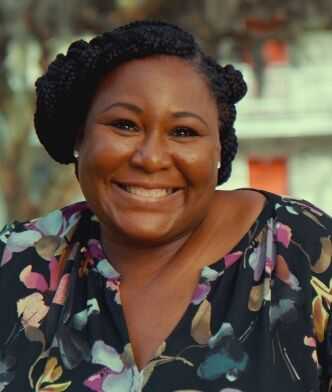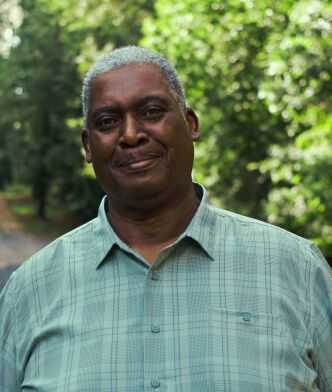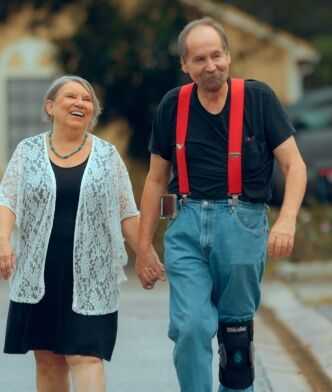Indianapolis Traffic Accidents
117 East Washington Street, Suite 201Indianapolis, IN 46204
Rating Overview
- The Fee Is Free Unless You Win®.
- America's Largest Injury Law Firm™
- Protecting Families Since 1988
- 20 Billion+ Won
- 1,000+ Lawyers Nationwide
Free Case Evaluation

The attorneys featured above are licensed in Florida. For a full list of attorneys in your state please visit our attorney page.
Indianapolis Traffic Accidents
According to National Highway Traffic Safety Administration data for 2020, Indiana, like many states across the U.S., saw a rise in traffic fatalities and injuries in spite of fewer people on the roads because of pandemic shutdowns. Unsurprisingly, Marion County, which is the most populous county in the state, led the way with 28,701 reported traffic accidents.
It may or may not be a surprise to you that Indianapolis ranks poorly on lists of best cities for drivers. Between shoddily maintained infrastructure and negligent driving practices, the Circle City ranks 39th on Wallet Hub's list of the best 100 largest U.S. cities to drive. The website uses 29 metrics to determine rankings, one of which is safety. Indianapolis ranked 82nd out of 100 in safety, which obviously dragged the total score down significantly.
Suppose you or a loved one has been one of the latest victims of Indianapolis traffic accidents. In that case, you may be worried about fighting with insurance companies so you can get the compensation needed for proper medical care and property damage reimbursement. If you choose to work with Morgan and Morgan, we will ensure that you have a hands-on advocate working on your side to protect your rights and recover compensation for your damages. Read more about how a Morgan and Morgan personal injury lawyer can provide valuable assistance.
Get answers to commonly asked questions about our legal services and learn how we may assist you with your case.
Morgan & Morgan
How to Find the Best Indianapolis Traffic Accidents Lawyer?
We understand that many people don't really think about lawyers until they need one. Even so, you've probably been inundated with lawyer ads on television, the internet, billboards, and even bus benches. However, when it comes to Indianapolis traffic accidents, not every law firm has the credentials needed to negotiate a successful claim. The stakes get even higher if you've been in a serious accident. You need a lawyer who excels at negotiation and won't be afraid to take it to the next level if needed.
Many traffic accident claims are successfully negotiated with insurance companies before considering a trial. Still, it's crucial to use a lawyer who isn't intimidated by the possibility of arguing your case in a courtroom. You might think that is a no-brainer. However, a surprising number of personal injury attorneys haven't seen the inside of a courtroom in ages, if ever. Typically, that's because they'll settle for less than what their client's claim is worth to avoid the hassle.
That is never the case at Morgan and Morgan. If we see there is still money left on the table, we'll fight for it. You deserve to be represented by a lawyer who will work hard to ensure you get everything coming to you, regardless of whether it takes more effort than the typical traffic accident claim. Our fee is free unless we win, so it doesn't cost more to go with the best possible Indianapolis traffic accidents lawyer.
How Can I Prove Fault in a Traffic Accident?
One critical aspect of a car insurance claim is to prove you're not the one responsible for the accident. Indiana is an at-fault state, which means the person who caused the accident is the one who is liable for damages. After a traffic accident, you want to recover a fair amount to compensate for your injuries and losses, which means you will need to demonstrate the other party is mostly in the wrong. Proving fault also means proving the other driver was being negligent when they caused the accident.
Negligence is a legal theory that is part of personal injury law. It's defined as a failure to act with the normal amount of care a reasonable person would use under similar circumstances. It can also include a lack of action when there is some duty to act to prevent harm to others. To prove negligence requires the following elements to be met:
- The existence of a legal duty the other party owed toward you
- The other party's breach of that duty
- You suffered an injury
- The other party's breach of duty was the cause of your injury
Let's break these elements down a little further:
Legal duty of care - Everyone who gets behind the wheel of a motor vehicle has a duty of care to other drivers, motorcyclists, bicyclists, and pedestrians who use the roadways. The duty of care is not to cause harm to others. That is accomplished by taking responsibility by obeying traffic signs and signals, paying attention while driving, and using care while around other motorists and pedestrians.
The legal duty of care doesn't stop with drivers. Other entities that may be linked to a traffic accident also owe a legal duty of care, such as vehicle and parts manufacturers, mechanics, and government agencies that maintain the roadways.
Breach of duty - A breach of duty occurs when a driver doesn't use reasonable care to ensure other people around them won't be harmed. This could include things like texting while driving, speeding, or driving under the influence to name a few. However, as mentioned previously, it's not always the driver who is at fault. If some component on the car fails, like the steering system or brakes, a manufacturer may be at fault.
In the case of multiple vehicles or entities involved, it's critical to identify who violated the duty of care or, at least, who is most responsible and liable for your damages. In complicated cases involving multiple parties, having an expert Morgan and Morgan personal injury lawyer on your side is essential to determine who failed in the duty of care.
You suffered an injury - In a negligence case, you must have suffered an injury for the case to be valid. The injury or damage can be physical or emotional and includes things like property damage. Even if the other party were extremely reckless, you wouldn't have a claim without some injury or loss.
The other party's breach of duty was the cause of our injury - Under the duty of care, the other party's actions must be sufficiently related to the cause of your injuries. For instance, if the other driver ran a red light and t-boned you while you were making a left-hand turn, but for their disregard for the traffic signal, you would not have been injured.
What Is Comparative Fault Under Indiana Law?
Indiana's negligence system uses modified comparative fault when determining liability in traffic accidents. This means that any responsibility you had in the accident will factor into how much you may be awarded. Under Indiana law, any person who has 51% or more responsibility in a traffic accident is barred from recovering compensation from the other party. However, suppose you were judged to be 30% to blame by a jury who awarded you $100,000 for your case. In that case, you would be able to collect 70% of your award or $70,000. For this reason, we highly recommend you have legal representation to minimize your responsibility.
Suppose multiple parties are involved in the accident. In that case, Indiana's legal system will assign liability proportional to the amount of each party's responsibility.
What Kind of Compensation Can I Get for Indianapolis Traffic Accidents?
When you've been in a traffic accident, there's a lot of cause for concern. Who will pay for my medical bills? What if I can't work? How can I get my vehicle fixed? Being the victim of someone else's negligence is never an easy experience. However, you have legal options to pursue the other driver for your damages. Under Indiana law, you can hold the other party responsible for paying expenses and losses such as:
- Medical bills, past, and future
- Property damage
- Lost income and limited earning capacity
- Pain and suffering
- Medical devices and home modifications that are required
- Medications
- Therapy
- Rehabilitation
- Loss of consortium
- Wrongful death (in the case of a fatality)
Indiana has no cap on damages for pain and suffering unless the responsible party is a state entity. In this case, damages are capped at $700,000.
How Can I Protect My Rights Directly After an Accident?
The actions you take directly after a traffic accident can significantly impact how successful you can be in recovering compensation. It's crucial to be aware of missteps that can be detrimental to your claim. Here are some basic steps to follow:
- Pull over to the side of the road to make it safer for everyone involved
- Check yourself and others over to see if medical attention is required
- Seek medical treatment regardless of your condition (some injuries aren't readily apparent yet can be very serious)
- Collect the contact information of other drivers and witnesses
- Retrieve and preserve any dash cam footage and look for additional nearby cameras that may have recorded the accident
- Get a copy of the accident report from the Indianapolis Metropolitan Police Department
- Contact a personal injury attorney at Morgan and Morgan
How to Beware of Talking to the Other Party's Insurance Company?
Generally, you'll be contacted by the other party's insurance company soon after the other party informs their insurance provider of the accident. Don't be fooled by their friendly and attentive manner. They are not here for you. They have one goal: to minimize your injuries and property damage so the company can pay as little as possible. Some insurance company representatives may even stoop to lies to attain the company goal, such as saying you must give a recorded statement immediately, you don't need an attorney, and the initial offer is the most you could possibly get.
These tactics are employed to make you think an attorney would be of no value, which is the exact opposite, especially if you have substantial losses and injuries. When you have legal representation, the amount of money you recover is often significantly higher than what you may get on your own. Suppose you get a call from the insurance provider. In that case, you are not obligated to make a statement right away until after you have secured a lawyer. However, you should get one as soon as possible because delaying can complicate your claim.
Working With Morgan and Morgan
We understand you have lots of choices when it comes to lawyers who can help you with a traffic accident. That's why we don't ask you to trust us at face value. Instead, take a look at our results. We have helped tens of thousands of clients just like you recover the compensation they deserve after suffering the effects of another driver's negligence.
While we are artful at negotiation, we never hesitate to take insurance companies to court if their settlement offers don't make sense. Why settle for less than your case is worth when you don't have to? When you work with Morgan and Morgan, you don't just have the help of a highly experienced lawyer. You have everything that one of the largest law firms in the country can provide. We have a massive network of forensic scientists, investigators, and expert witnesses that can add strength to your claim. And your lawyer won't be working alone. They will have access to support staff and leading technology to give you the edge. Contact us today for a free case evaluation. Our services are worry-free because you don't pay us a dime if we don't win.
In The Community
We’re dedicated to the cities and towns we call home. Discover the local Morgan & Morgan experience with news, events, and partnerships.
How it works
It's easy to get started.
The Fee Is Free Unless You Win®.
Results may vary depending on your particular facts and legal circumstances.
Step 1
Submit
your claimWith a free case evaluation, submitting your case is easy with Morgan & Morgan.
Step 2
We take
actionOur dedicated team gets to work investigating your claim.
Step 3
We fight
for youIf we take on the case, our team fights to get you the results you deserve.






